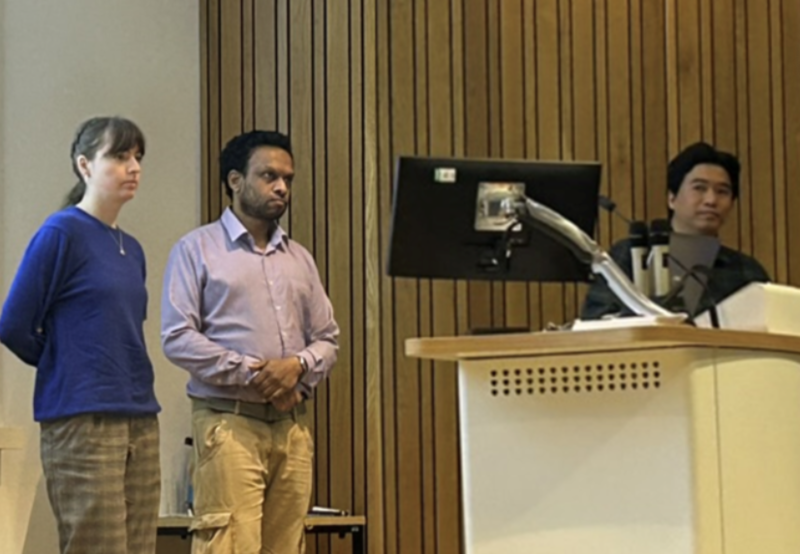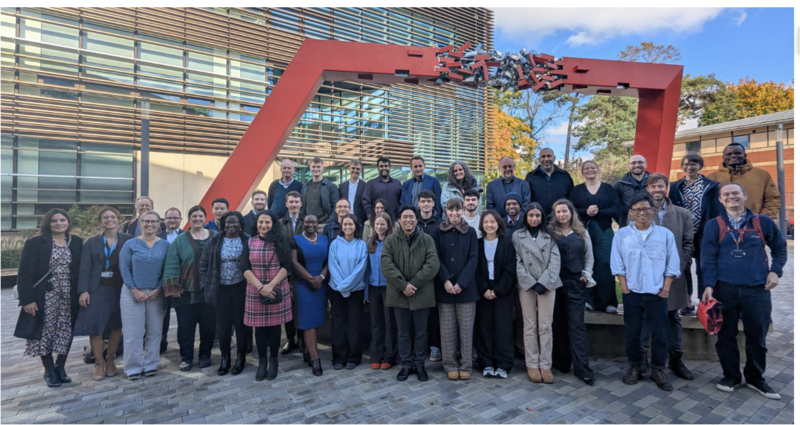Techniques to Determine Contamination of Medical Syrups Discussed at the Medicine Quality Meeting
The World Health Organisation (WHO) estimates that 1 in 10 medicines in low-income and middle-income countries are either falsified (fake medicines made by criminals for financial gain) or substandard (authorised but fail to meet quality standards). Research on substandard and falsified medical products was discussed at the Medicine Quality meeting which was held at the Richard Doll Building and attended by over forty participants from countries across Europe.

Presenters taking questions after the talks at the Medicine Quality meeting. From left to right: Isabelle Legge (McCullagh lab, Department of Chemistry), Bevin Gangadharan and Yohan Arman (Zitzmann lab, Dept of Biochemistry). Photo credit: Nicole Zitzmann
Prof. Nicole Zitzmann, Dr. Bevin Gangadharan and Yohan Arman attended the meeting in Oxford to discuss their novel approaches to detect contaminants (diethylene glycol, DEG, and ethylene glycol, EG) in medicinal syrups and raw ingredients. The Zitzmann lab are working with the Medicines Quality Research Group (within the Nuffield Department of Medicine), the Department of Chemistry and the Rutherford Appleton Laboratory (RAL) of UKRI on this project to evaluate innovative techniques to screen for DEG and EG.

Participants of the Medicine Quality meeting held on the 24th of October 2024. Photo credit: Celine Caillet.
In the morning of the meeting, 14 participants presented their work. Bevin showed a range of low-cost techniques to detect the contaminants including a rapid test (2 minutes) costing less than £1 and Yohan presented data on how mass spectrometry could successfully identify DEG and EG. In the afternoon, Yohan and Bevin participated in roundtable discussion on screening technologies to detect DEG and EG.

Roundtable discussion on screening technologies to detect DEG and EG. Photo credit: Celine Caillet.
See the links below for more details on the Medicine Quality meeting and the DEG-EG project:
https://www.tropicalmedicine.ox.ac.uk/news/experts-gather-to-discuss-medicine-quality-research
https://www.bioch.ox.ac.uk/article/novel-techniques-to-screen-for-contaminants-in-medicinal-syrups
Since April 2021, Oxford University's KAVLI Institute for Nanoscience Discovery is proudly serving as a hub for research groups from seven different departments spanning both the medical and physical sciences, including Professor Nicole Zitzmann's group from the Department of Biochemistry.